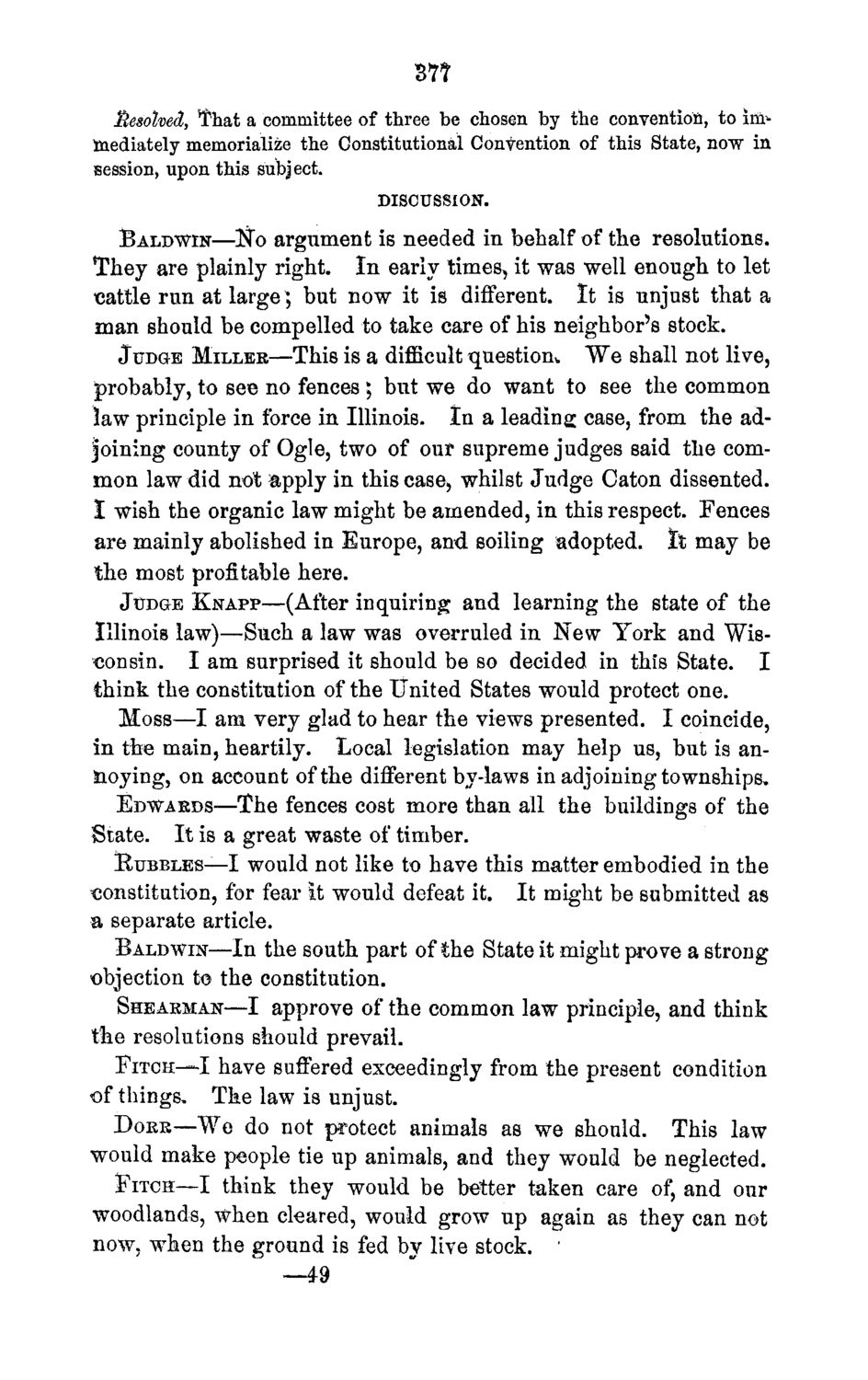| |
| |
Caption: Board of Trustees Minutes - 1870
This is a reduced-resolution page image for fast online browsing.

EXTRACTED TEXT FROM PAGE:
vn Hesotved, *fhat a committee of three be chosen by the convention, to im> mediately memorialize the Constitutional Contention of this State, now in session, upon this subject. DISCUSSION. BALDWIN—No argument is needed in behalf of the resolutions. They are plainly right. I n early times, it was well enough to let cattle run at large; but now it is different. I t is unjust that a man should be compelled to take care of his neighbor's stock. JUDGE MILLER—This is a difficult question*, W e shall not live, probably, to see no fences; but we do want to see the common law principle in force in Illinois. In a leading case, from the adf oining county of Ogle, two of our supreme judges said the common law did not &pply in this case> whilst Judge Caton dissented. I wish the organic law might be amended, in this respect. Fences are mainly abolished in Europe, and soiling adopted. I t may be the most profitable here. JUDGE KNAPP—(After inquiring and learning the state of the Illinois law)—Such a law was overruled in New York and Wisconsin. I am surprised it should be so decided in this State. I think the constitution of the United States would protect one. Moss—I am very glad to hear the views presented. I coincide, in the main, heartily. Local legislation may help us, but is annoying, on account of the different by-laws in adjoining townships. EDWABDS—The fences cost more than all the buildings of the State. I t is a great waste of timber. RUBBLES—I would not like to have this matter embodied in the constitution, for fear It would defeat it. It might be submitted as & separate article. BALDWIN—In the south part of the State it might prove a strong objection to the constitution. SHEARMAN—I approve of the common law principle, and think the resolutions should prevail. FITCH—I have suffered exceedingly from the present condition of things. The law is unjust. DORK—We do not protect animals as we should. This law would make people tie up animals, and they would be neglected. FITCH—I think they would be better taken care of, and our woodlands, when cleared, would grow up again as they can not now, when the ground is fed by live stock. ' —49
| |